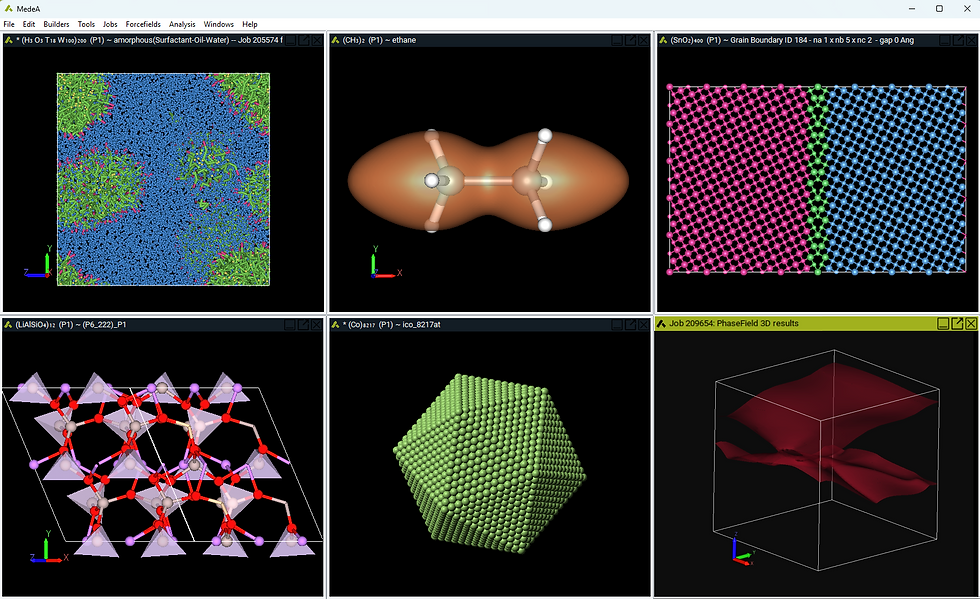Webinar: Machine Learning Meets Quantum Chemistry: Using Theory, Data, and Experiments to Design Cat
- Katherine Hollingsworth
- Jan 28, 2021
- 2 min read
Upcoming Webinar and Training Session
Catalysis is the cornerstone of the modern chemical industry. Catalysts not only convert natural resources into the products that we use in our daily lives, but they also reduce unwanted reactions and increase process efficiency. Catalysts minimize the energy penalty of reactions and maximize selectivity for desired products. In this webinar we will describe some of the ways that MedeA can be used to understand reaction mechanisms, and discuss the incorporation of machine learning techniques to accelerate catalyst understanding and discovery. Webinar topics include:
Exploring reaction pathways with MedeA tools
Calculating surface strain effects for core-shell nanoparticles
Quantifying alloy effects on catalysts
Studying biopolymer interaction effects on catalysts
Operating potential effect on the stability of electro-catalysts
Screening of bimetallic materials using high-throughput
Analyzing the electronic structure of adsorbates on catalysts
Applying Bayesian learning approaches to predict site reactivity
MedeA Training Session: Orbital Level Understanding of Adsorbate-Surface Interactions in Catalysis
The week following the webinar, Dr. Wang and the Materials Design Support Team invite you to attend a MedeA training session. This training is open to everyone. Learn to use the MedeA GUI, MedeA VASP, MedeA Phonon, MedeA Gaussian, MedeA Flowcharts, and analysis tools to explore catalytic processes! Training topics:
User-friendly structure builder
Finding stable adsorption site with MedeA Docking
Transition state search with MedeA Transition State Search (TSS)
Electronic structure analysis of adsorption site
Gibbs free energy calculation with MedeA Phonon and MedeA Gaussian
Generate large and consistent sets of computed data and descriptors with the MedeA Descriptors HT (high-throughput) module
Webinar and Training Dates
Tuesday, February 2nd: 10:00 am PDT / 11:00 am MDT/ 12 pm CDT/ 1 pm EDT (USA) 7:00 pm Europe (CET) 11:30 pm India (IST) Wednesday, February 3rd: 7:00 am PDT / 10:00 am EDT (USA) 4:00 pm Europe (CET) Thursday, February 4th: 8:00 am Europe (CET) 12:30 pm India (IST) 3:00 pm China (CST) 4:00 pm Japan (JST)
MedeA Training
Thursday, February 11th:
10:00 am PDT / 11:00 am MDT/ 12 pm CDT/ 1 pm EDT (USA)
7:00 pm Europe (CET)
11:30 pm India (IST)
*Registrations will also include a link to the recording and slides after the live session ends.
Dr. Siwen Wang
Siwen Wang is an application and support scientist on the Materials Design team. Siwen graduated from Virginia Tech with a Ph.D. degree in Chemical Engineering. She has extensive research experience in applying density-functional theory, molecular dynamics, and machine learning to the study of catalysis and surface science as well as energy capture and storage.







Comments